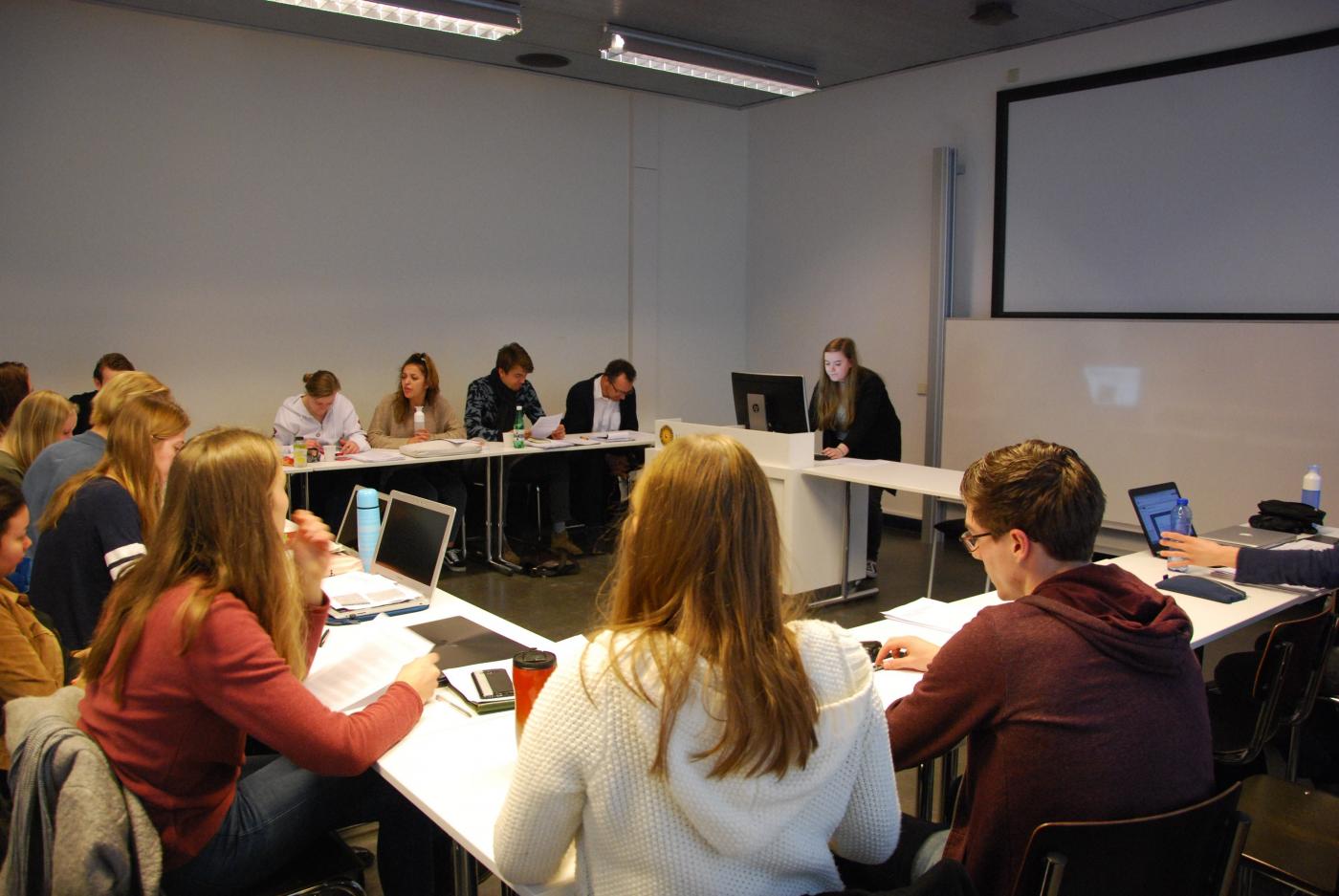Finally! Government gives universities green light to reopen

The last few weeks have been nerve-wracking for the higher education sector: will the government let universities open their doors again or not? Student organisations, teachers, managers and politicians have been pleading for more classes on campus for months, but the Cabinet waited until the very last moment to make a decision: just last week, Rutte stated that universities' reopening would depend on the situation at the hospitals.
The protesters can therefore breathe a sigh of relief. From next Monday, students may go to campus once a week to attend classes or some other form of face-to-face education. The usual rules (1.5 metre distance, washing your hands, and staying home if you experience any symptoms) still apply. "I know this isn't a huge change, but it is enough", observed the premier, stressing that students will be able to leave their laptops and their small rooms for a bit. "Although this isn't but a first step, I think it's good news for students and higher education institutions".
What about UU?
UU's schedulers are also relieved. Block 4 starts precisely on the 26th of April, and they had already planned all classes on campus. As stated in the last Corona Update e-mail from the Executive Board, the university had high hopes of a reopening. "We would like to offer 35 percent of our educational activities on location again, with room for additional affairs. We're striving to soon enable each student to come to campus at least once a week for classes or educational activities".
Ending on a positive note
Student organisations welcome the news. "Hopefully having classes on campus once a week will make a difference for students, so they can finish this academic year on a positive note", said Dahran Çoban, chairperson of the Dutch National Student Association (ISO in the Dutch acronym).
But they cannot help but look forward to the future. After all, one class a week is far from normal, stressed Lyle Muns, chairperson of the National Student Union (LSVb). "Considering the number of daily infections, it is understandable that there are still restrictions to the amount of classes students are allowed to take on campus, but higher education institutions should be able to reopen completely by September".
According to LSVb, some study programmes have indicated they are not planning on offering classes on location from the 26th of April, which worries Muns. "We call for those programmes to take advantage of what they're being offered now".
"Normal"academic year
The Association of Dutch Universities (VSNU in the Dutch acronym) declared that its members are eager to receive students in their premises again. "We're going to do our best to facilitate more face-to-face encounters as soon as possible", stated chairman Pieter Duisenberg. "Through classes and working groups, but also in our libraries and other buildings".
The goal remains to have a "normal" academic year in 2021-2022, in which all students may go to campus as many times as they want, Duisenberg emphasises. "We're calling on the government to include this in their reopening plans".
Self-tests for free
The current reopening is not going to resemble the one made last year. This time, the Cabinet is asking all students and staff to take a preventive coronavirus test before going to campus, which is why it will start distributing self-tests for free from May onwards. More information about the tests will be made available tomorrow on the website Zelftestonderwijs.nl (it is only available in Dutch).
Taking such a test is not mandatory, but there is a draft bill in the Parliament proposing to make it so for students (but not teachers). That may perhaps be necessary, considering very few students were willing to stick a cotton swab up their noses before class in a pilot scheme conducted at the Avans University of Applied Sciences. Moreover, a survey by Erasmus Magazine revealed that over 50 percent of students in Rotterdam were not keen on getting frequently tested.
Truth be told, campuses weren't completely shut the last couple of months. Students were still allowed to attend practical sessions and exams, not to mention students with a disability or illness could be helped on location, too.
Pavement cafés and pubs
Mark Rutte also had good news for those looking to socialise a bit more: the evening curfew is coming to an end on the 28th of April and the amount of guests one is allowed to receive at home is increasing from one to two. Pavement cafés and pubs may operate between 12:00 pm and 6:00 pm and shopping at physical retailers will be possible provided that the customer makes an appointment first. Lastly, more people will be allowed to attend funerals and theory tests for driving licenses.
What about gyms, theaters, museums, and amusement parks? Well, they are going to have to wait a little longer. The government must make choices, explained the Prime Minister. "We can't just open the entire country again. We did it last summer and we've all learned from that".